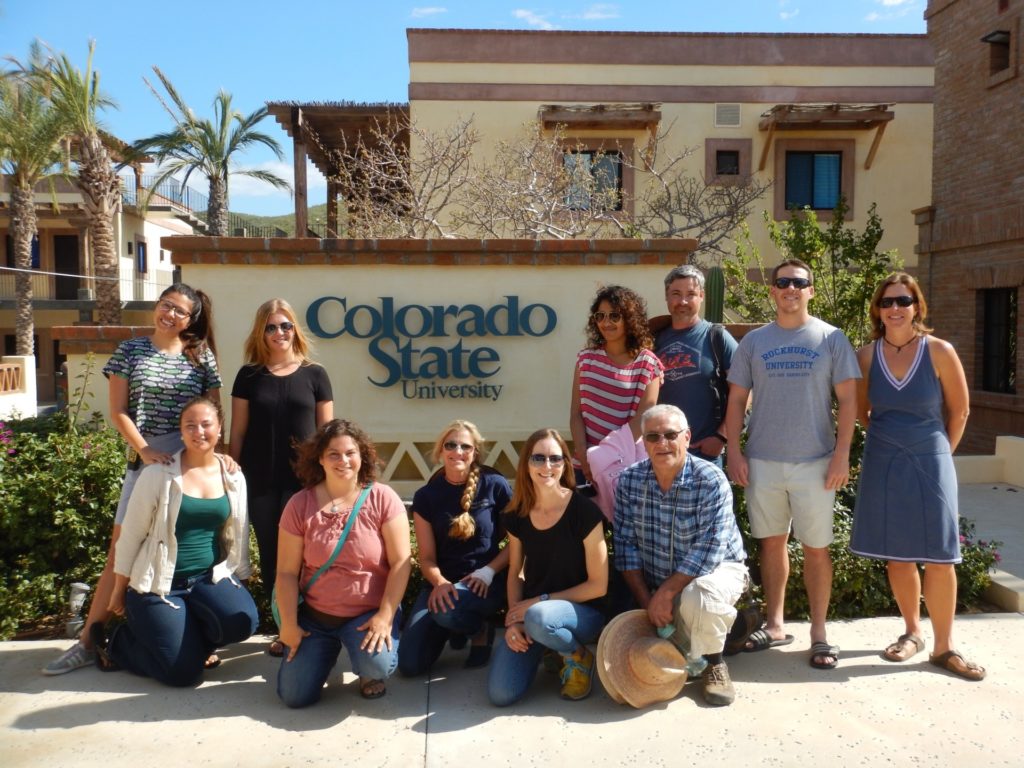
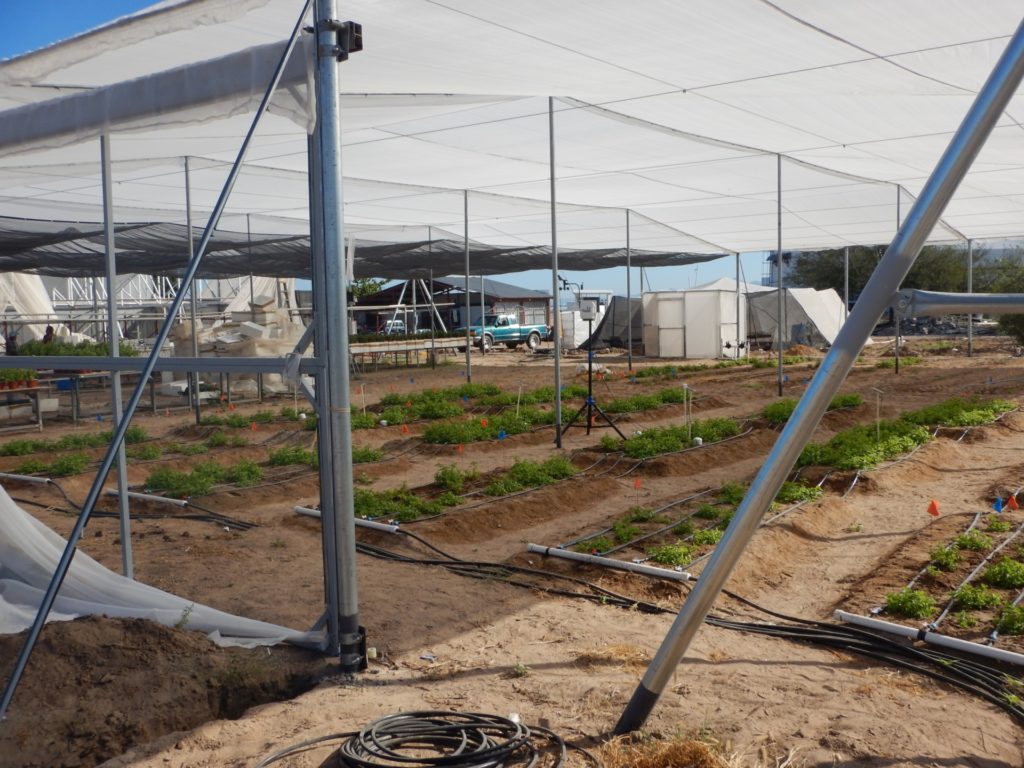
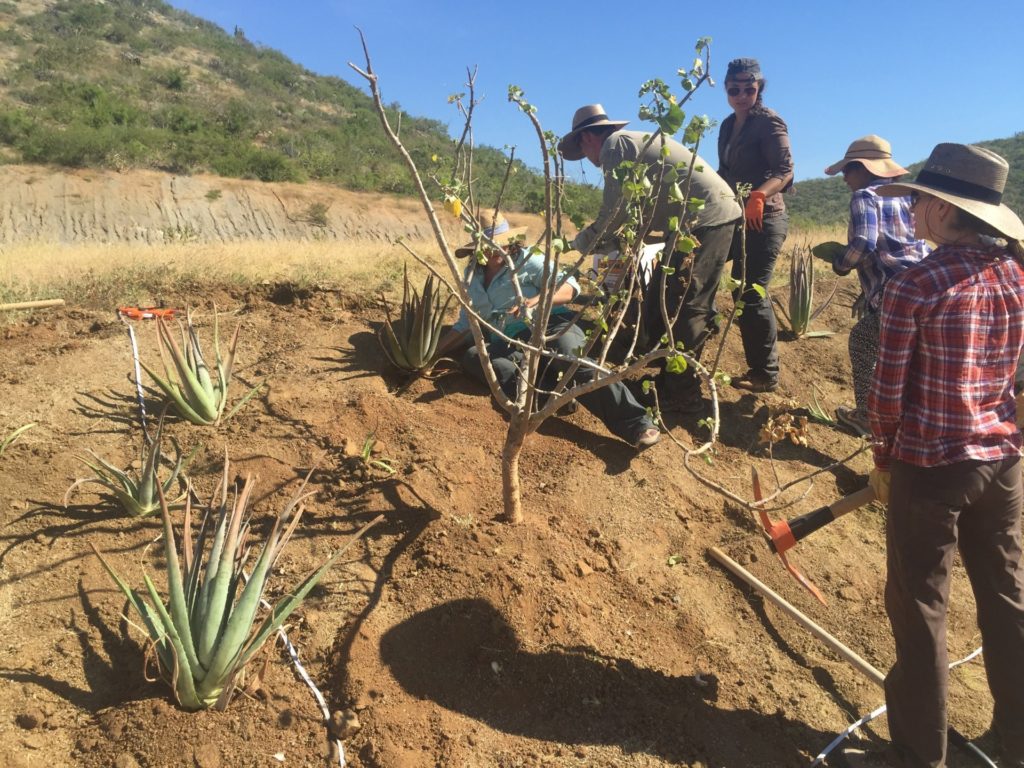
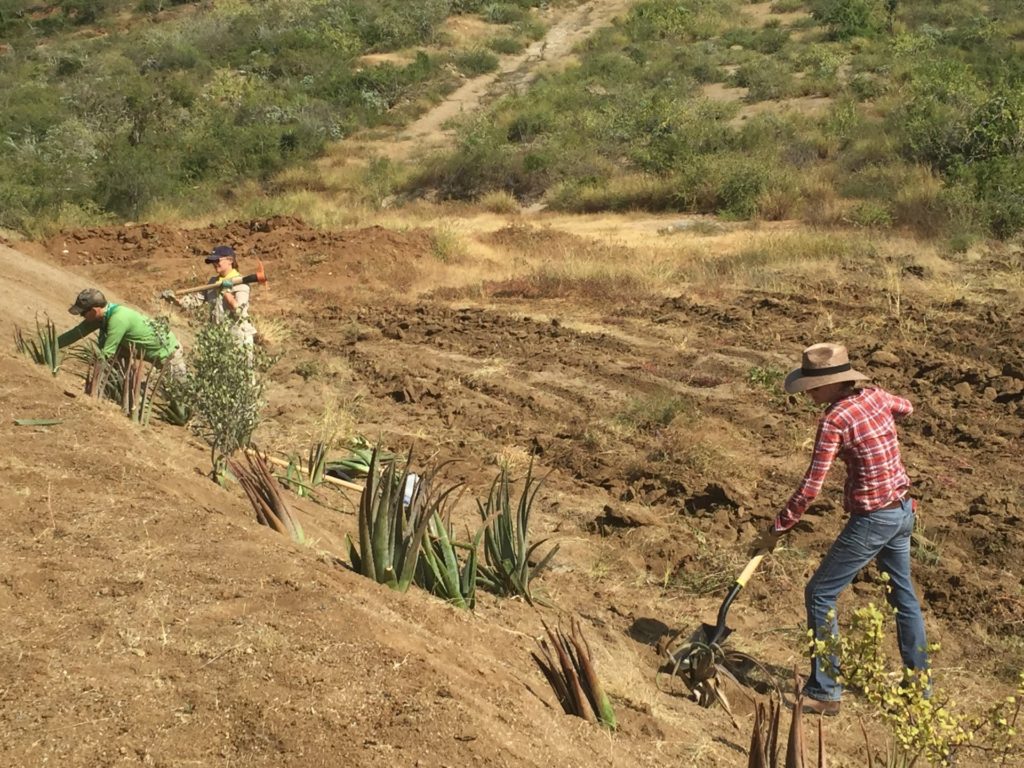
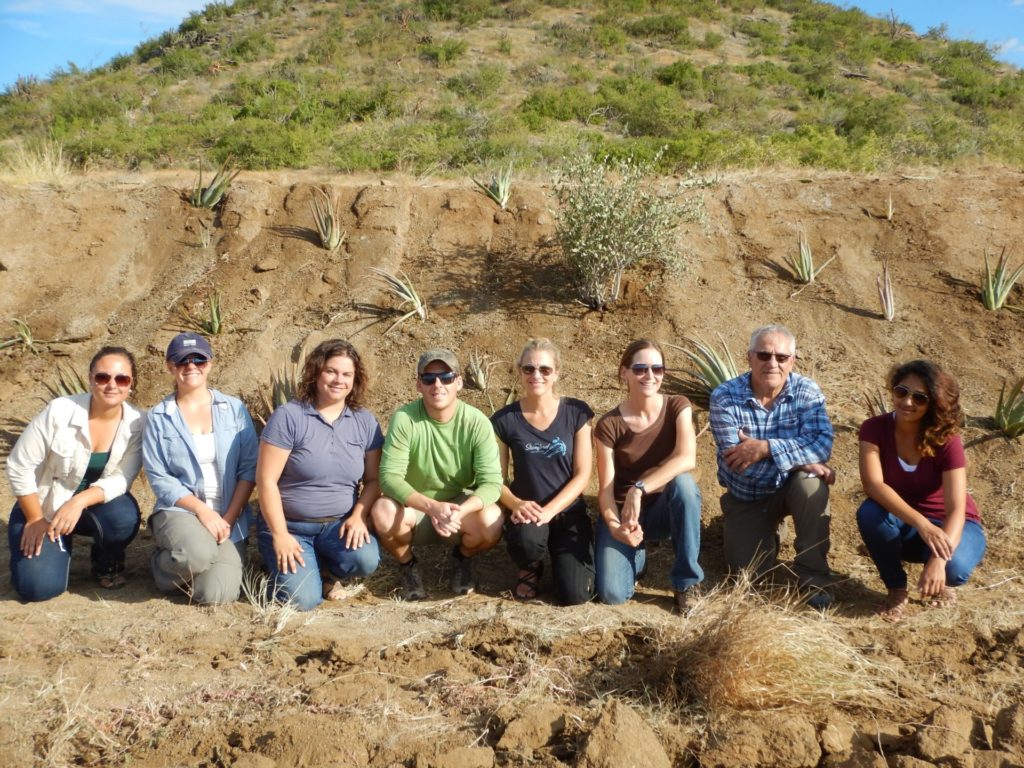
Students taking a sustainable agriculture course at Colorado State University traveled to the CSU Todos Santos Center in Baja California Sur this Fall semester to work with the local community and better understand agricultural landscapes and production.
The work – which included food preservation using a solar food dehydrator and a project on erosion control – continued to build on the work done by previous students. In 2015, faculty members Suellen Melzer and Addy Elliott from the College of Agricultural Sciences’ Department of Soil and Crop Sciences led a student course to Todos Santos in order to learn about regional agriculture and to develop ideas on how agricultural systems – conventional, organic, and mixed – continue to shape the region. They spent time building relationships with the local community and agricultural constituents, partnered with the local university in La Paz, and interfaced with government agencies including CIBNOR, the Mexican equivalent of USDA.
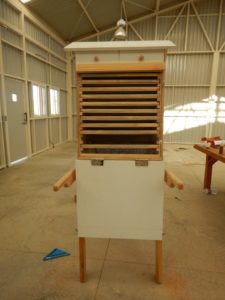
When students traveled to the region in October 2016, they were able to turn some of their classmate’s ideas into action.
“To be able to participate in this level of experiential learning is a phenomenal gift that strengthened my understanding of carrying out a project in sustainable agriculture in a foreign land,” said Tabitha Covey, a senior studying soil and crop sciences. “This trip to Todos Santos was thoroughly engaging and gave students the experience of engaging the three pillars of sustainability: social, economic, and environmental.”
The student group assessed land conservation needs, met with several government and regional agronomists to determine regional best practices, and began an erosion control project at the CSU Todos Santos Center farm. The project began by transplanting native aloe vera, lomboy, jojoba, and prickly pear along a slope dividing two of the agricultural fields. Locally derived, farm-based organic materials were incorporated into the fields, and water capture and transfer systems were assessed with the goal of building soil health.
For CSU’s Melzer, the progress has been encouraging and has provided key experiential learning opportunities for her students. Still, she notes that the work is far from over.
“We are planning biennial visits with students from our course and we will continue to develop new farm and community projects including a dehydrator workshop using locally-grown mangos, and the planting of precipitation-fed cover crops to continue building soil organic matter and soil health on the fields,” she said. “It is important to note that this will be an evolving project.”
Student-built food dehydrator adds new dynamic for Todos Santos food producers
It arrived in pieces, along with the tools to build it. Carefully tucked in Hairik Honarchian bags was everything needed to finish a food-grade passive solar dehydrator that could processes up to 100 pounds of produce in a matter of days.
Honarchain, a Colorado State University student pursuing a Master of Agriculture degree, visited the CSU Todos Santos Center in Baja California Sur in October as part of a College of Agricultural Sciences course. The class, led by Department of Soil and Crop Sciences faculty Suellen Melzer and Addy Elliot, worked on several projects during the trip. The food dehydrator was Honarchain’s focus.
“It is a device that can help generate added value to the food products that are already being produced, and, thus, be helpful economically; it would reduce post-harvest food waste,” Honarchain said. “And it will do all these in an environmentally friendly manner. It is solely powered by sun, and, therefore, has a zero carbon footprint when being operated.”
About the CSU Todos Santos Center
The Colorado State University Todos Santos Center is the university’s first international location and is core to CSU’s mission of teaching, research, service, and outreach. The Center provides opportunities for CSU students and Baja California Sur residents to collaborate with local partners and businesses to identify needs, conduct research, and produce impactful outcomes. CSU’s vision in Todos Santos is to cultivate generations of global citizens and to be a part of creating thriving communities through collaboration, experience, and exchange of knowledge in areas such as agriculture, infectious disease, elementary education, environmental and social sustainability, wildlife ecology, veterinary medicine, and public health.